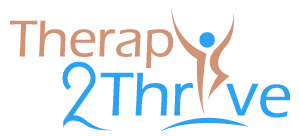Stress and Counseling
Therapy2Thrive® BLOG
925-998-3392
Stress Management Tips: 5 Reasons to Say “No”
Here is another stress management consideration…..Your boss appears at 5 pm on Friday, dumps something on your already overloaded desk and demands that you drop everything to work on it immediately. You’re volunteering at a charity function tonight and coaching your son’s baseball team the next day. You nod and say you’ll do it, even though you’re already overextended.
If this is you, you don’t know how to say no.
“Saying no is a primary skill that assists people in communicating their boundaries and limits,” says Leslie Baker, a licensed marriage and family therapist and area chair in the University of Phoenix Master of Science in Counseling program. Here are five reasons to say no more often:
-
You’ll get your life back.
“People who feel obligated to say yes all the time — even when they don’t want to — are essentially approval seekers,” explains Paul Fornell, MS, a mental health therapist and an instructor in the counseling program. “Young children are constantly seeking approval, but some of us have trouble outgrowing that phase well into adulthood.”Fornell speaks from personal experience. “I used to volunteer for literally everything, so I became known among my colleagues as ‘the man with no life,’” he says. After a period of burnout, Fornell eventually learned to say no to things he didn’t want to do.“I still volunteer a lot, but now I focus on jazz charity events, which I really enjoy. You can say yes, just not to everything.” -
You’ll feel less overwhelmed.
Saying yes to every single request will eventually backfire, according to John Nixon, EdD, a licensed professional counselor and clinical director of the Counseling Skills Center at the University of Phoenix Las Vegas Campus.“It can be hard to say no, especially at work,” he acknowledges. “But when you agree to take on more than you can do, you set yourself up for failure.” Your initial gut reaction to a request is your best indicator whether to say no, Nixon argues. “Know your own limitations and communicate them from the beginning,” he says -
You’ll get more done.
If you keep your workload levels reasonable by saying no when appropriate, you can actually accomplish more, according to Nixon. “If you have more work than you can do, try bargaining,” he advises.“Communicate respectfully and clearly that you need to reprioritize or delegate some tasks to complete other.” The result, he says, is often a more efficient solution for everyone -
Your relationships will improve.
“Pleasing others at the expense of ourselves is often referred to as codependency,” a dysfunctional state, Baker explains.Meanwhile, developing assertiveness skills can help restore balance to relationships, she counters. “Assertive individuals have lower levels of stress because they manage less conflict and are able to build stronger and more supportive relationships,” she says. -
You’ll feel better about yourself.
People who have trouble setting boundaries often have low self-esteem, but learning to say no can help boost confidence, according to Nixon. “It’s crucial to draw your self-worth from within,” he says, “rather than from how others perceive you.”
By Jill Elaine Hughes, discussion with Leslie Baker, Marriage and Family Therapist in Pleasanton, Paul Fornell, MS and John Dixon, EdD

Therapy2Thrive® brings Hope for Healing
Our counselors at Therapy2Thrive® provide compassionate, practical, and evidenced based practices to assist you with stress, depression and other challenges in the therapeutic process to meet your goals and find hope to heal the challenges you are facing.
Contact our counselors for private consultation in Pleasanton
